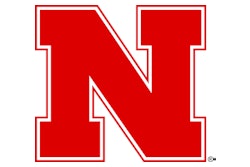Copyright 2018 Virginian-Pilot Companies LLC
All Rights Reserved
The Virginian — Pilot (Norfolk, VA.)
RALEIGH, N.C. — The NCAA is carving out a limited role for agents to work with college basketball players and is changing key parts of its rules-enforcement system as part of numerous reforms in the wake of a corruption scandal.
The Indianapolis-based governing body for college sports announced Wednesday that its Board of Governors and Division I Board of Directors had adopted a "series of significant policy and legislative changes" as part of an effort to "fundamentally" change the NCAA's structure. Some are immediate, while others first require action from other agencies — such as the NBA changing the age limit for draft-eligible players that has fueled the wave of "one and done" at the college level.
That follows late-April recommendations from the commission headed by former U.S. Secretary of State Condoleezza Rice following a federal investigation into alleged bribes and kickbacks designed to influence recruits on choosing a school, agent or apparel company. Georgia Tech president and Board of Directors chairman Bud Peterson said the NCAA had pushed through changes in about 3½ months that would "normally take us about two years through the governance process."
"Today was obviously a very important day for the NCAA and especially for men's basketball, and ... Division I," NCAA President Mark Emmert said in a teleconference with reporters Wednesday afternoon.
The agent changes are about transparency and offering a legitimate avenue for communication or advice that previously could've taken place in the shadows — and raised the likelihood of attracting unscrupulous actors.
Now college basketball players can work with an NCAA-certified agent while testing the waters of declaring for the NBA draft. College players first would have to request an evaluation from the NBA Undergraduate Advisory Committee about their draft prospects after the season, and that would clear the way to enter into a written agreement — disclosed to the NCAA or school — with the agent.
That agreement must end if the player returns to school.
Agents would be allowed to cover minimal expenses such as meals and transportation associated with meetings or workouts with pro teams, though the NCAA said that might first require revisions to the Uniform Athlete Agent Act — a version of which is in place in more than 40 states to regulate unethical agent conduct. Previously pro teams could cover some of those expenses.
The agents would have to be certified by the NCAA by no later than August 2020. Agents certified by the NBA players' union would qualify until a formal deadline is set.
The NCAA included a provision allowing agent access for high school players identified as an elite prospect by USA Basketball beginning July 1 before their senior year. But that is dependent on the NBA and players' union lowering the age limit of draft-eligible players to 18, which would clear the way for elite players to go from preps to pros. It's unclear what impact that would have on colleges recruiting NBA-ready prospects.
The changes also include allowing a player to return to school if undrafted, but only if he sought the NBA advisory evaluation and participated in the scouting combine.
Read More of Today's AB Headlines
Subscribe to Our Daily E-Newsletter
Terms and Conditions Privacy Policy































